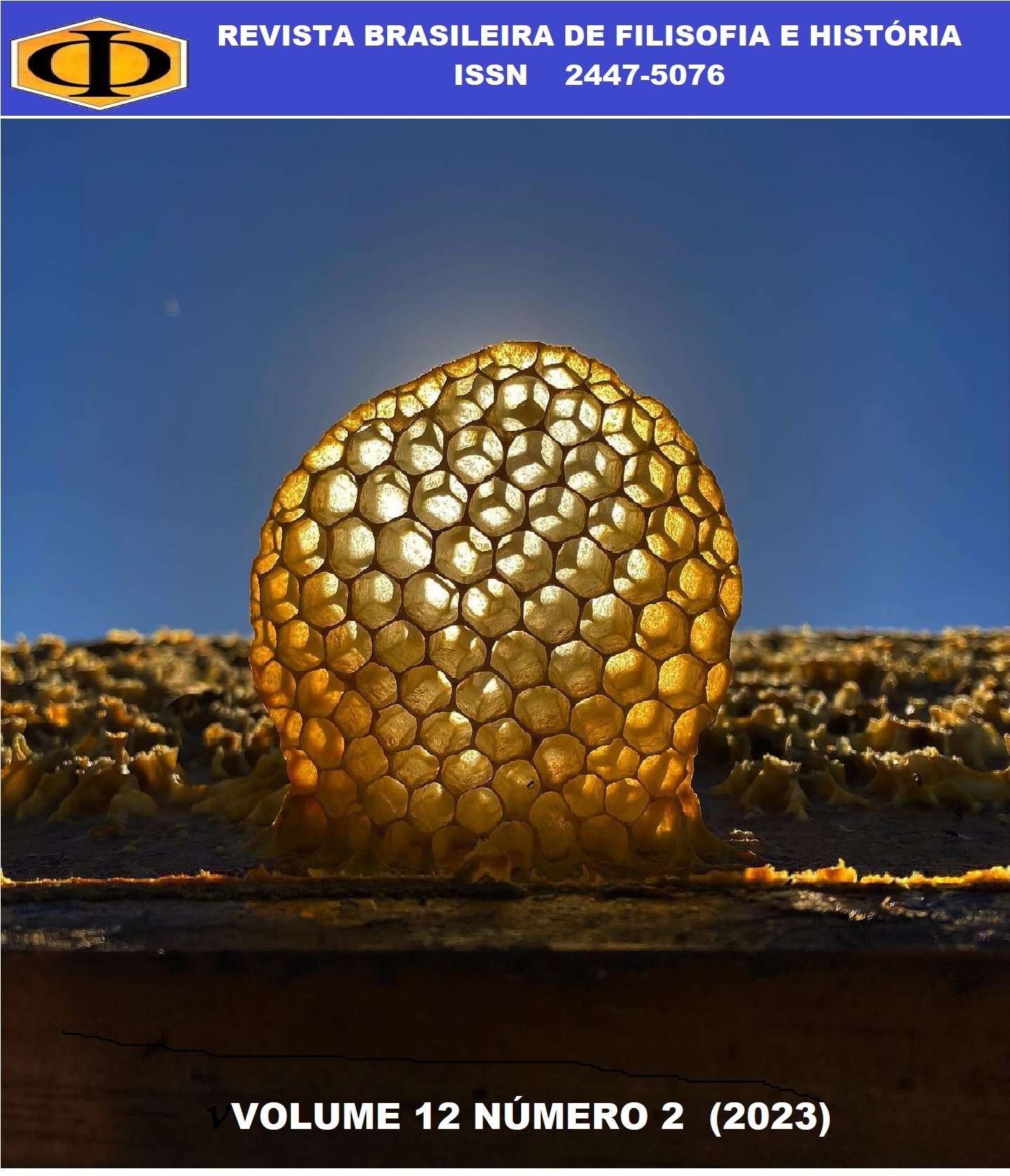The fundamental right of access to justice and the factual counterpoint
Abstract
The criminal procedurais systems presuppose the adoption of constitutional guidelines and norms of each state, for adaptation to the concrete case. In Brazil, given the antiquity and contradictions of its current code, the legislation is in need of improvement. With the advent of the Anti-Crime Package, especially with regard to the guarantee judge, the thesis was legally established that the Brazilian criminal procedure should be governed by the accusatory system. All this, related to the implementation of a guarantor judge who is primarily responsible for controlling the legality of the criminal investigation and safeguarding individual rights. In this environment, the rationale that the institute would be the best way to implement the principle of impartiality, as a fundamental attribute of the jurisdictional exercise of the state, is consistent. In addition, the system will cause significant impacts on the procedural scenario, which must be taken into account to guarantee the effectiveness of the jurisdictional provision and the reasonable duration of the process.
References
BRASIL. Código de Processo Civil (2015). Código de Processo Civil Brasileiro. Brasília,DF:Senado,2015.Disponível em: https://www.planalto.gov.br/ccivil_03/_ato2015-2018/2015/lei/l13105.htm. Acesso em: 08 de junho de 2023.
BRASIL. Código de Processo Penal. Decreto lei nº 3.689, de 03 de outubro de 1941. Disponível em: https://www.planalto.gov.br/ccivil_03/decreto-lei/del3689.htm. Acesso em: 08 de junho de 2023.
BRASIL. Decreto-Lei 2.848, de 07 de dezembro de 1940. Código Penal. Disponível em: https://www.planalto.gov.br/ccivil_03/decreto-lei/del2848compilado.htm. Acesso em: 10 de junho de 2023.
BRASIL. Constituição (1988)]. Constituição da República Federativa do Brasil de 1988. Brasília, DF: Presidência da República. Disponível em: https://www.planalto.gov.br/ccivil_03/constituicao/constituicao.htm. Acesso em: 08 de junho de 2023.
SUPERIOR TRIBUNAL FEDERAL. Súmula nº 282. É inadmissível o recurso extraordinário, quando não ventilada, na decisão recorrida, a questão federal suscitada.Disponívelem:https://portal.stf.jus.br/jurisprudencia/sumariosumulas.asp?base=30 sumula=249. Acesso em: 08 de junho de 2023.
SUPERIOR TRIBUNAL FEDERAL. Súmula nº 283. É inadmissível o recurso extraordinário, quando a decisão recorrida assenta em mais de um fundamento suficiente e o recurso não abrange todos eles. Disponível em: https://portal.stf.jus.br/jurisprudencia/sumariosumulas.asp?base=30&sumula=2226#:~:text=%C3%89%20inadmiss%C3%ADvel%20o%20recurso%20extraordin%C3%A1rio,recurso%20n%C3%A3o%20abrange%20todos%20eles. Acesso em: 08 de junho de 2023.
SUPERIOR TRIBUNAL FEDERAL. Súmula nº 356. O ponto omisso da decisão, sobre o qual não foram opostos embargos declaratórios, não pode ser objeto de recurso extraordinário, por faltar o requisito do prequestionamento. Disponível em: https://portal.stf.jus.br/jurisprudencia/sumariosumulas.asp?base=30 sumula=2648. Acesso em: 08 de junho de 2023.
SUPERIOR TRIBUNAL DE JUSTIÇA. Súmula nº 7. A pretensão de simples reexame de prova não enseja recurso especial. Disponível em: https://www.stj.jus.br/docs_internet/revista/eletronica/stj-revista-sumulas- 2005_1_capSumula7.pdf. Acesso em: 08 de junho de 2023.
SUPERIOR TRIBUNAL DE JUSTIÇA. Súmula em 211. Inadmissível recurso especial quanto à questão que, a despeito da oposição de embargos declaratórios, não foi apreciada pelo Tribunal a quo. Disponível em: https://www.stj.jus.br/docs_internet/revista/eletronica/stj-revista-sumulas- 2010_15_capSumula211.pdf. Acesso em: 08 de junho de 2023.
SUPERIOR TRIBUNAL DE JUSTIÇA. RECURSO ESPECIAL: REsp nº
/SC (2018/0183510-4). Relator: Min. Luis Felipe Salomão, 31 jul. 2018. Disponível em:
https://processo.stj.jus.br/processo/pesquisa/?aplicacao=processos.ea&tipoPesquis a=tipoPesquisaGenerica&termo=REsp%201755266. Acesso em: 10 de junho de 2023.
SUPERIOR TRIBUNAL DE JUSTIÇA. RECURSO ESPECIAL: REsp nº
/AM (2020/0248929-4). Relator: Min. Rogerio Schietti Cruz, 24 set. 2020. Disponível em: https://processo.stj.jus.br/processo/pesquisa/?aplicacao=processos.ea&tipoPesquis a=tipoPesquisaGenerica&termo=REsp%201932774. Acesso em: 10 de junho de 2023.
SUPERIOR TRIBUNAL DE JUSTIÇA. RECURSO ESPECIAL: REsp nº
/AM. Relator: Min.Rogerio Schietti Cruz, 30 de set. 2020. Disponível em
https://processo.stj.jus.br/processo/pesquisa/?aplicacao=processos.ea&tipoPesquis a=tipoPesquisaGenerica&termo=REsp%201932774. Acesso em: 10 de junho de 2023.
SUPERIOR TRIBUNAL DE JUSTIÇA. AGRAVO EM RECURSO ESPECIAL. AgRg no REsp 1740921/GO. Relator: Min. Ribeiro Dantas, 19 de nov. 2018. Disponível em: https://processo.stj.jus.br/jurisprudencia/externo/informativo/. Acesso em: 10 de junho de 2023.
FACHINI, Tiago. Recurso especial no Novo CPC: requisitos, hipóteses e prazos. ProJuris, 2022. Disponível em: https://www.projuris.com.br/blog/recurso-especial/#:~:text=O%20recurso%20especial%20%C3%A9%20um,vigente%20e%20 com%20a%20jurisprud%C3%AAncia. Acesso em: 08 de junho de 2023.
LINHARES, Rafaela. Inquérito Policial: o que é e para o que serve? Politize, 2020. Disponível em: https://www.politize.com.br/inquerito-policial/. Acesso em: 08 de junho de 2023.
NUCCI, GUILHERME DE SOUZA. Manual de processo penal e execução penal. 13. ed. rev., atual. e ampl. – Rio de Janeiro: Forense, 2016.
SUPERIOR TRIBUNAL DE JUSTIÇA. STJ anula pronúncia baseada apenas em elementos do inquérito não confirmados em juízo. Boletim Jurídico, 2021. Disponível em: http://boletimjuridico.publicacoesonline.com.br/stj-anula-pronuncia- baseada-apenas-em-elementos-do-inquerito-nao-confirmados-em-juizo/. Acesso em: 08 de junho de 2023.
Nasce o Recurso Especial. Disponível em: https://www.stj.jus.br/sites/portalp/Institucional/Historia/Nasce-o-Recurso-Especial. Acesso em: 08 de junho de 2023.
TRIBUNAL DE JUSTIÇA DO DISTRITO FEDERAL E DOS TERRITÓRIOS. Roteiro do Tribunal do Júri. Disponível em: https://www.tjdft.jus.br/informacoes/tribunal-do- juri/tribunaldojuri_antes.pdf. Acesso em: 08 de junho de 2023.
Downloads
Published
Versions
- 2023-07-28 (3)
- 2023-07-28 (2)
- 2023-07-25 (1)
How to Cite
Issue
Section
License
Esta é uma revista de acesso livre, onde, utiliza o termo de cessão seguindo a lei nº 9.610/1998, que altera, atualiza e consolida a legislação sobre direitos autorais no Brasil.
Autores que publicam na Revista Brasileira de Filosofia e História (RBFH) concordam com os seguintes termos:
O(s) autor(es) doravante designado(s) CEDENTE, por meio desta, cede e transfere, de forma gratuita, a propriedade dos direitos autorais relativos à OBRA à Revista Brasileira de Filosofia e História (RBFH), representada pelo Grupo Verde de Agroecologia e Abelhas (GVAA), estabelecida na Rua João Pereira de Mendonça , 90 Bairro Petropolis em Pombal - PB doravante designada CESSIONÁRIA, nas condições descritas a seguir: 1. O CEDENTE declara que é (são) autor(es) e titular(es) da propriedade dos direitos autorais da OBRA submetida. 2. O CEDENTE declara que a OBRA não infringe direitos autorais e/ou outros direitos de propriedade de terceiros, que a divulgação de imagens (caso as mesmas existam) foi autorizada e que assume integral responsabilidade moral e/ou patrimonial, pelo seu conteúdo, perante terceiros. O CEDENTE cede e transfere todos os direitos autorais relativos à OBRA à CESSIONÁRIA, especialmente os direitos de edição, de publicação, de tradução para outro idioma e de reprodução por qualquer processo ou técnica através da assinatura deste termo impresso que deverá ser submetido via correios ao endereço informado no início deste documento. A CESSIONÁRIA passa a ser proprietária exclusiva dos direitos referentes à OBRA, sendo vedada qualquer reprodução, total ou parcial, em qualquer outro meio de divulgação, impresso ou eletrônico, sem que haja prévia autorização escrita por parte da CESSIONÁRIA.













